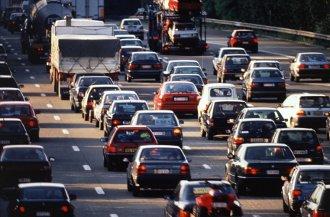To help drivers choose new cars with low fuel consumption, EU countries are required to ensure that relevant information is provided to consumers, including a label showing a car's fuel efficiency and CO2 emissions.
The 'car labelling Directive' (Directive 1999/94/EC) aims to:
- help consumers buy or lease cars which use less fuel and thereby emit less CO2;
- encourage manufacturers to reduce the fuel consumption of new cars.
As a demand-side policy, this directive is a complementary measure to help car manufacturers meet their specific CO2 emission targets set under Regulation (EU) 2019/631.

Information to consumers
The directive requires:
- A label showing fuel economy and CO2 emissions on all new cars or displayed nearby at the point of sale;
- A poster or display prominently showing the official fuel consumption and CO2 emissions data of all new car models displayed or offered for sale or lease at point of sale;
- A yearly guide on fuel economy and CO2 emissions from new cars, produced in consultation with manufacturers. The guide should be available free of charge at the point of sale and from a designated body within each Member State;
- All promotional literature to contain the official fuel consumption and CO2 emissions data for the car models to which it refers.
Annexes to the directive set out minimum requirements that each of these items must meet.
A Commission recommendation published in May 2017 seeks to further improve car labelling by:
- supporting Member States to make full use of the new test procedure (WLTP) in a coordinated way to provide improved information to consumers;
- encouraging Member States to make air pollution related information available to consumers.
Review of the directive
The Commission is required to review the car labelling Directive by 31 December 2024, considering the need to provide consumers with accurate, robust and comparable information on:
- fuel and energy consumption,
- CO2 emissions and air pollutant emissions of new passenger cars placed on the market, including under real-world conditions.
The Commission should also evaluate the options for introducing a fuel economy and CO2 emissions label for new light commercial vehicles.
- Directive 1999/94/EC relating to the availability of consumer information on fuel economy and CO2 emissions in respect of the marketing of new passenger cars (consolidated)
- Commission Recommendation (EU) 2017/948 of 31 May 2017 on the use of fuel consumption and CO2 emission values type-approved and measured in accordance with the World Harmonised Light Vehicles Test Procedure (WLTP) when making information available for consumers pursuant to Directive 1999/94/EC
- Commission Recommendation of 26 March 2003 on the application to other media of the provisions of Directive 1999/94/EC concerning promotional literature
- 2021 - Technical analysis of measures to improve consumer awareness of emissions and fuel consumption of vehicles
- 2016 - Evaluation of Directive 1999/94/EC ("the car labelling Directive") - Final report
- 2013 - "Testing CO2/Car labelling options and consumer information" – behavioural study - Annex 2 - Other annexes
- 2012 - Report on the implementation of Directive 1999/94/EC relating to the availability of consumer information on fuel economy and CO2 emissions in respect of the marketing of new passenger cars and Annexes
- 2005 - Report on the effectiveness of the car fuel efficiency labelling directive 1999/94/EC and options for improvement and Annexes
